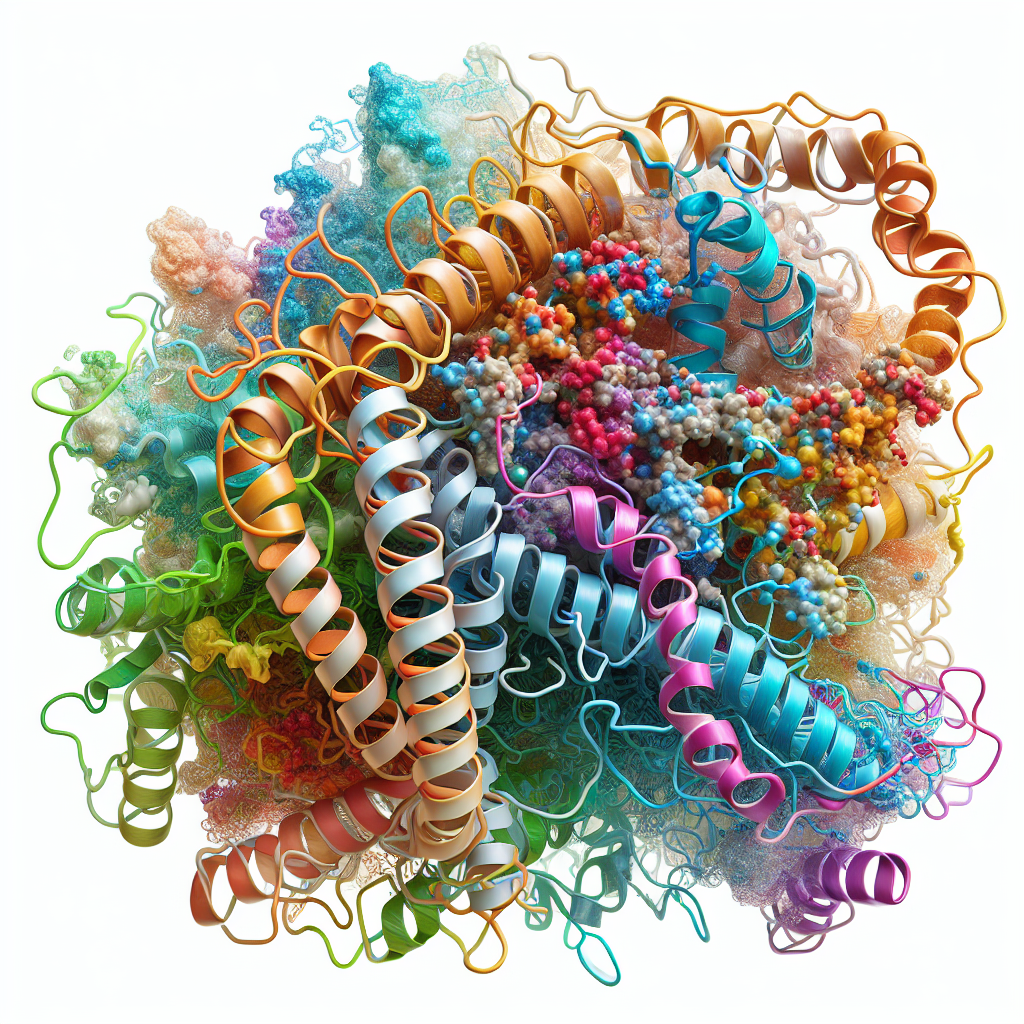PNGase F Protein: Essential Enzyme in Glycobiology
-
Table of Contents
- PNGase F Protein: Pivotal Enzyme in Glycobiology Research
- Understanding PNGase F Protein
- Structure and Mechanism of Action
- Applications in Glycoprotein Research
- Impact of PNGase F on Glycobiology
- Case Studies and Examples
- Technological Advances and Future Directions
- Statistics and Trends in Glycobiology
- Conclusion: The Indispensable Role of PNGase F
- Discover High-Quality Proteins with ETprotein
PNGase F Protein: Pivotal Enzyme in Glycobiology Research

Glycobiology, the study of the structure, function, and biology of carbohydrates, also known as glycans, is a rapidly expanding field in biological sciences. Central to this field is the understanding of glycoproteins, which are proteins that have carbohydrates attached to them. One enzyme, in particular, plays a crucial role in the study of glycoproteins: PNGase F. This enzyme is essential for researchers to dissect and analyze the complex structures of glycoproteins. In this article, we will delve into the significance of PNGase F protein in glycobiology, its applications, and how it has revolutionized the study of post-translational modifications.
Understanding PNGase F Protein
Peptide-N-Glycosidase F, commonly known as PNGase F, is an amidase that cleaves the glycosidic bond between asparagine residues and N-linked oligosaccharides in glycoproteins. This enzymatic activity is crucial for the deglycosylation process, which is the removal of glycans from proteins. PNGase F is derived from Flavobacterium meningosepticum and is widely used in biochemistry and molecular biology for its specificity and efficiency.
Structure and Mechanism of Action
The structure of PNGase F is well-characterized, and its mechanism of action involves the hydrolysis of the amide bond between the asparagine side chain and the innermost N-acetylglucosamine (GlcNAc) of the attached glycan. This specificity allows for the release of intact oligosaccharides, which can then be analyzed separately from the protein component.
Applications in Glycoprotein Research
PNGase F has a wide range of applications in the field of glycobiology:
- Glycoprotein Characterization: By removing glycans, researchers can study the peptide backbone of glycoproteins more easily.
- Mass Spectrometry: Deglycosylation simplifies mass spectrometry (MS) analysis, allowing for more accurate protein identification and characterization.
- Quality Control: In the biopharmaceutical industry, PNGase F is used to ensure the consistency and efficacy of therapeutic glycoproteins.
- Functional Studies: Understanding the role of glycans in protein function can be achieved by comparing the activity of glycosylated and deglycosylated proteins.
Impact of PNGase F on Glycobiology
The introduction of PNGase F into glycobiology research has had a profound impact on the field. It has enabled the detailed study of protein glycosylation, which is a critical post-translational modification affecting protein folding, stability, and function. The enzyme has facilitated the development of glycoproteomics, the large-scale study of glycoproteins, by allowing researchers to identify glycosylation sites and analyze glycan structures.
Case Studies and Examples
Several studies have highlighted the importance of PNGase F in glycobiology:
- A study on the human immunodeficiency virus (HIV) revealed that the removal of glycans from the envelope protein gp120 significantly reduced its ability to evade the immune system, showcasing the role of glycosylation in viral pathogenesis.
- In cancer research, the analysis of tumor glycoproteins using PNGase F has provided insights into the mechanisms of cancer progression and potential therapeutic targets.
- The development of biotherapeutics, such as monoclonal antibodies, relies heavily on the use of PNGase F to ensure the proper glycosylation patterns that affect the drug’s efficacy and safety.
Technological Advances and Future Directions
Advancements in glycan analysis techniques, such as high-throughput mass spectrometry and glycan microarrays, have been made possible in part by the use of PNGase F. The future of glycobiology research will likely see an increased reliance on this enzyme as new methods for glycan analysis and manipulation are developed.
Statistics and Trends in Glycobiology
The glycobiology market has been growing steadily, with an increasing number of publications and patents involving PNGase F. The global market for glycomics/glycobiology was valued at USD 1.1 billion in 2020 and is expected to reach USD 2.4 billion by 2025, growing at a CAGR of 13.8% during the forecast period. This growth is indicative of the expanding role of glycoscience in biotechnology and pharmaceutical research.
Conclusion: The Indispensable Role of PNGase F
In summary, PNGase F protein is an indispensable tool in the field of glycobiology. Its ability to efficiently and specifically remove N-linked glycans from glycoproteins has revolutionized the study of these complex molecules. The enzyme has facilitated advancements in various research areas, including virology, oncology, and the development of biotherapeutics. As the field of glycobiology continues to grow, PNGase F will remain a critical component in the toolkit of researchers aiming to unravel the mysteries of glycosylation.
Discover High-Quality Proteins with ETprotein
If you are engaged in glycobiology research or any other field requiring high-quality protein products, ETprotein is your go-to source. ETprotein offers a wide range of protein products that cater to various research and industrial needs. Their commitment to quality and customer satisfaction makes them a reliable partner for sourcing enzymes like PNGase F and other protein products.
For more information on ETprotein’s offerings or to request a sample, please reach out to them at sales(at)ETprotein.com.
About ETprotein:
ETprotein, a reputable plant protein vegan protein Chinese factory manufacturer and supplier, is renowned for producing, stocking, exporting, and delivering the highest quality organic bulk vegan protein and plant proteins. They include Organic rice protein, clear rice protein, pea protein, clear pea protein, watermelon seed protein, pumpkin seed protein, sunflower seed protein, mung bean protein, peanut protein etc. Their offerings, characterized by a neutral taste, non-GMO, allergen-free attributes, cater to a diverse range of industries. They serve nutraceutical, pharmaceutical, cosmeceutical, veterinary, as well as food and beverage finished product distributors, traders, and manufacturers across Europe, USA, Canada, Australia, Thailand, Japan, Korea, Brazil, and Chile, among others.
ETprotein specialization includes exporting and delivering tailor-made protein powder and finished nutritional supplements. Their extensive product range covers sectors like Food and Beverage, Sports Nutrition, Weight Management, Dietary Supplements, Health and Wellness Products, and Infant Formula, ensuring comprehensive solutions to meet all your protein needs.
As a trusted company by leading global food and beverage brands and Fortune 500 companies, ETprotein reinforces China’s reputation in the global arena. For more information or to sample their products, please contact them and email sales(at)ETprotein.com today.














